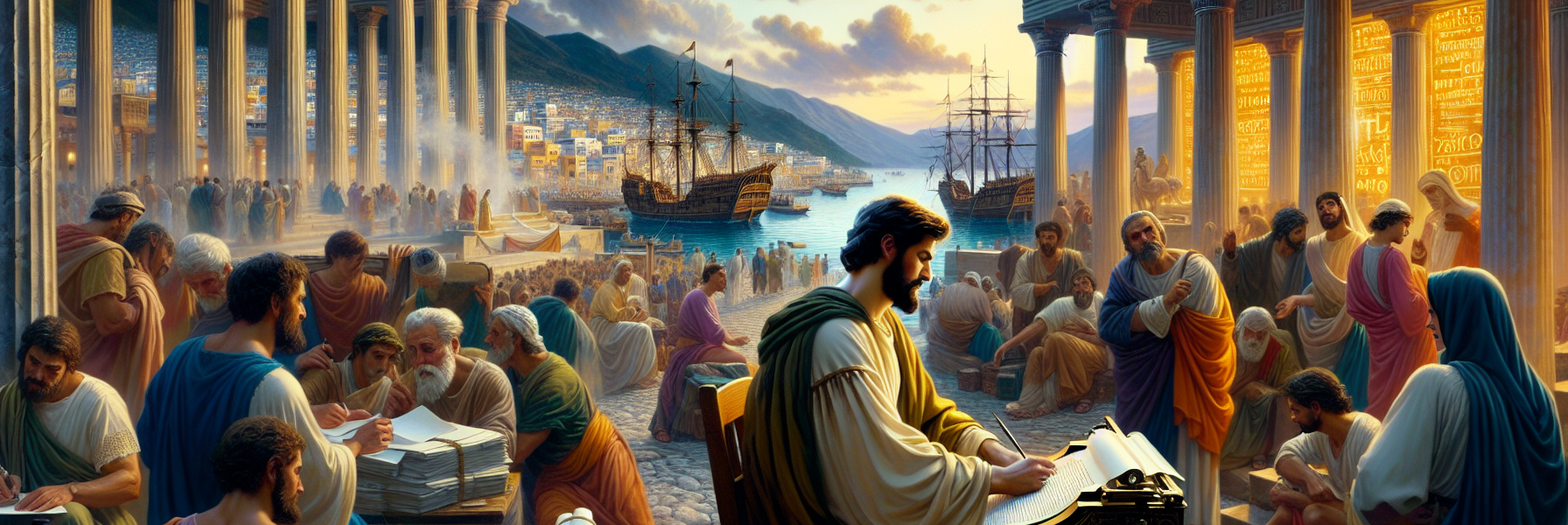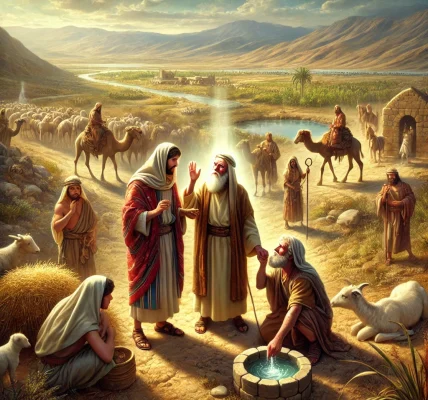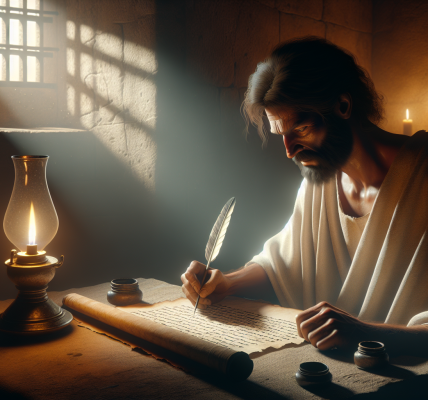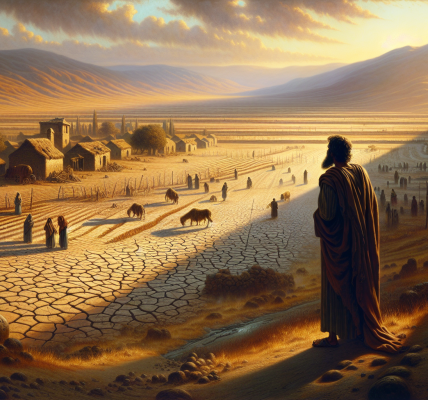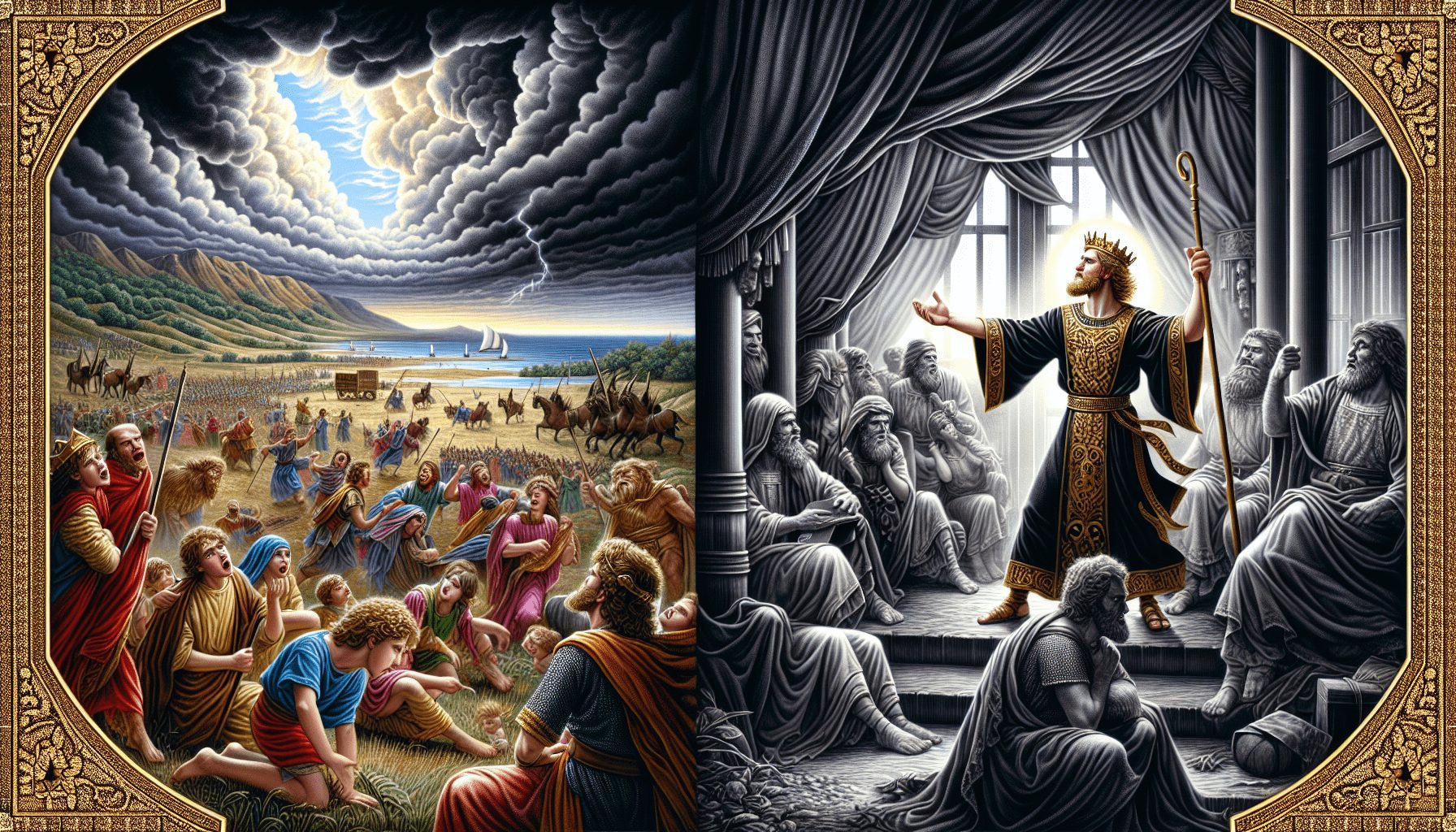**The Victory of the Resurrection**
The city of Corinth buzzed with life—ships crowded its harbors, merchants haggled in the agora, and philosophers debated in the shadow of marble temples. Yet amid the clamor of a thriving metropolis, the fledgling church faced deep divisions and confusion. Some among them had begun to question the very foundation of their faith: the resurrection of the dead.
It was in this setting that Paul, the apostle who had first brought them the gospel, penned a letter filled with urgency and conviction. His words would echo through the ages, a clarion call of hope and truth.
### **The Gospel Proclaimed**
Paul began by reminding them of the message he had preached—the gospel they had received and by which they stood. *”For I delivered to you as of first importance what I also received,”* he wrote, *”that Christ died for our sins in accordance with the Scriptures, that He was buried, that He was raised on the third day in accordance with the Scriptures.”*
He recounted the witnesses: Peter, the Twelve, over five hundred brothers at once—many still living, though some had fallen asleep. Then James, all the apostles, and finally, to Paul himself, the least of them, as one untimely born. The resurrection was no myth; it was a historical reality, testified by those who had seen the risen Lord with their own eyes.
### **If Christ Has Not Been Raised**
But some in Corinth denied the resurrection of the dead. Paul’s tone grew solemn. *”If Christ has not been raised,”* he declared, *”then our preaching is in vain and your faith is in vain.”* The implications were staggering. If the dead were not raised, then Christ Himself had not been raised. And if Christ had not been raised, their faith was futile—they were still in their sins.
Worse still, those who had died in Christ had perished forever. *”If in Christ we have hope in this life only,”* Paul wrote, *”we are of all people most to be pitied.”* But this was not the case! Christ *had* been raised, the firstfruits of those who had fallen asleep.
### **The Firstfruits of New Creation**
Paul painted a breathtaking picture: just as death came through one man, Adam, so resurrection came through one man, Christ. In Adam, all died; in Christ, all would be made alive. But there was an order—Christ first, then at His coming, those who belonged to Him.
Then would come the end, when Christ delivered the kingdom to the Father, having destroyed every rule, authority, and power. The last enemy to be abolished was death itself. *”For He must reign until He has put all His enemies under His feet.”*
### **The Mystery of the Resurrection**
Anticipating their questions, Paul turned to the nature of the resurrection body. *”How are the dead raised? With what kind of body do they come?”* He answered with an analogy from nature: a seed must die to bring forth new life. The body sown in weakness would be raised in power; sown in dishonor, raised in glory.
Just as there were earthly bodies and heavenly bodies, so too the resurrection body would be different—imperishable, immortal, victorious over decay. *”Flesh and blood cannot inherit the kingdom of God,”* Paul explained, *”nor does the perishable inherit the imperishable.”*
Then, with triumphant certainty, he proclaimed the mystery: *”We shall not all sleep, but we shall all be changed—in a moment, in the twinkling of an eye, at the last trumpet.”* The dead would be raised imperishable, and the living would be transformed. Death would be swallowed up in victory.
### **The Sting of Death Defeated**
Paul’s words crescendoed into a hymn of victory:
*”O death, where is your victory?
O death, where is your sting?”*
The sting of death was sin, and the power of sin was the law. But thanks be to God, who gave them the victory through Jesus Christ!
### **Stand Firm**
With this unshakable hope, Paul exhorted them: *”Therefore, my beloved brothers, be steadfast, immovable, always abounding in the work of the Lord, knowing that in the Lord your labor is not in vain.”*
The letter would be read aloud in the gathering of believers, its truth settling like a firm foundation beneath their feet. The resurrection was not a mere doctrine—it was the heartbeat of their faith, the promise of a future so glorious that every present suffering paled in comparison.
And so, strengthened by Paul’s words, the church in Corinth—and all who would later read this letter—could face life and death with unwavering hope. For Christ had risen, and so too would they.
